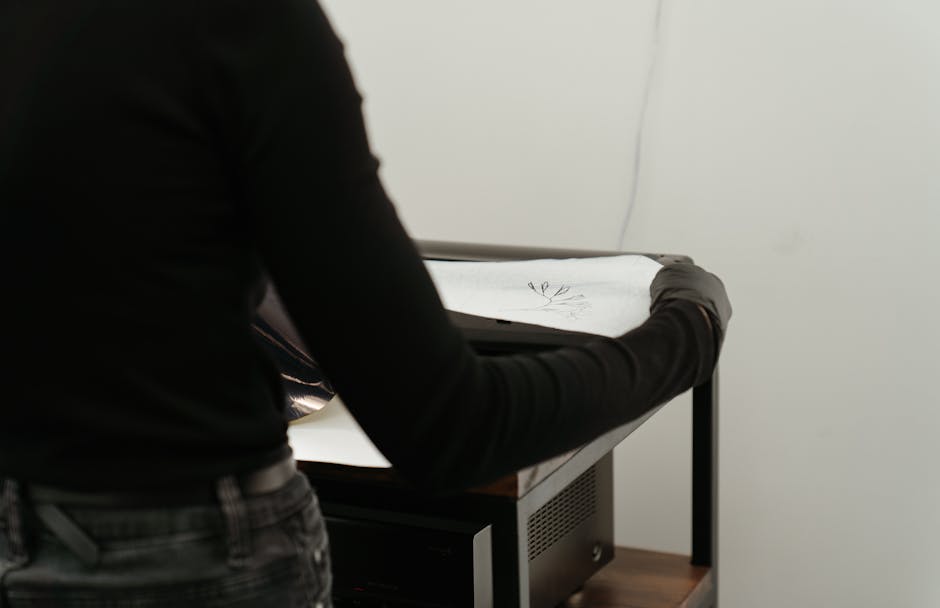Our Blog
Licensing Variations
State-specific licensing requirements for travel nurses can significantly influence their ability to transition and work across various states promptly. Each state has its unique set of rules and regulations governing the nursing profession, leading to various challenges for nurses looking to practice in multiple locations. These differences can result in substantial delays or barriers when attempting to secure employment in a new state, directly impacting the mobility and flexibility of travel nurses.
Obtaining licensure in new states often requires extensive paperwork, fees, and sometimes even examinations or background checks. For travel nurses accustomed to moving between assignments quickly, this can mean unwelcome downtime and uncertainty. In some instances, nurses may find themselves waiting weeks or even months for licensure approval, during which they cannot legally work, leading to potential financial strain.
The varying continuing education requirements across states also pose a challenge. In one state, a nurse might fulfill all necessary criteria to maintain their license, but upon moving, they could encounter a new set of educational prerequisites. This inconsistency demands more time and financial investment from the nurse. It complicates the licensure renewal process, making it harder for nurses to plan their careers and manage their professional development effectively.
The lack of reciprocity between state licenses poses another substantial challenge for travel nurses. While some states participate in the Nurse Licensure Compact (NLC), allowing nurses to practice in any participating state with one multistate license, many states are not part of this agreement. This lack of unanimity forces nurses to apply for new licenses every time they wish to take an assignment in a non-compact state, increasing administrative burden and limiting job flexibility.
The financial implications of these varying state-specific requirements are significant. Apart from direct costs associated with applications and renewals, travel nurses might face indirect expenses from delayed start dates or the need to maintain multiple active licenses to secure continuous employment. This situation could lead to tough decisions about accepting assignments based on logistical feasibility rather than professional or personal preference.
These stringent and diverse requirements also impact healthcare facilities and patients, particularly in regions experiencing nursing shortages or needing specialized care. Delays in licensing can mean delays in filling critical staffing gaps, potentially affecting patient care and outcomes. As travel nurses play an essential role in addressing these shortages, streamlining the licensure process could significantly enhance the healthcare system’s responsiveness and flexibility in meeting patient needs.
State-specific licensing requirements create significant obstacles for travel nurses, making it challenging to navigate their careers fluidly. Complex processes for obtaining licensure hinder the ability to move and work across state lines quickly, varied continuing education requirements, and a lack of license reciprocity. This situation presents complications for the nurses, healthcare facilities, and patient care.

Tax Implications
Tax Implications for Travel Nurses
Navigating the labyrinth of state-specific tax regulations adds another layer of complexity to the already challenging life of travel nurses. As they move from assignment to assignment across different states, understanding and managing the tax implications of their mobile lifestyle is crucial. This section delves into the state income tax requirements, the concept of establishing a tax home, and strategic tactics for handling taxation in multiple jurisdictions.
State Income Tax Requirements
For travel nurses working in multiple states throughout the year, the state income tax requirements can be as varied as the clinical environments they adapt to. Most states impose income taxes on earnings within their jurisdiction, meaning a nurse working in multiple states may need to file multiple state tax returns. The rules for apportioning income and paying taxes can differ significantly from state to state, leading to a web of tax liabilities that require careful navigation.
Some states have reciprocal agreements, simplifying the process for individuals who live in one state but work in another. However, not all states participate in such agreements, and travel nurses often work in non-reciprocal states, necessitating filing returns in each state where they’ve earned money. A handful of states, including Texas and Florida, have no state income tax, which could financially relieve travel nurses during assignments in these areas.
Establishing a Tax Home
The concept of a tax home is central to the tax situation of a travel nurse. A tax home is the area where a person’s principal business or employment is located, regardless of the location of their family home. For travel nurses, maintaining a clear, consistent tax home is critical for determining tax liabilities and eligibility for certain deductions, such as those for travel and lodging expenses while working away from their tax home.
Establishing and maintaining a solid tax home involves several criteria, including working in the area of the tax home for a significant portion of the year and incurring substantial “living expenses” at the primary residence when not on assignment. This aspect can be somewhat blurred for travel nurses who may not often return to their purported tax home, posing challenges in proving it’s their main place of business.
Strategies for Managing and Filing Taxes
Given the complexities, travel nurses must adopt savvy strategies to manage and correctly file their taxes. One fundamental approach entails meticulous record-keeping: maintaining detailed logs of assignments, earnings from each state, and related expenses is pivotal. Such records can not only support tax home status but also aid in ensuring accuracy across multiple state returns.
Utilizing professional tax advice is another strategy that cannot be underestimated. Tax professionals familiar with multi-state filings and the specific situations of travel nurses can provide valuable guidance. These experts can navigate the nurses through potential pitfalls, ensuring they leverage all available deductions while remaining compliant with varying state requirements.
Software solutions designed for multi-state filings can also simplify the process, offering tools to manage earnings and taxes from different states. Nonetheless, a solid understanding of one’s tax situation and active engagement remain essential.
The Crossroads of Care and Compliance
In addressing the tax implications of working in multiple states, travel nurses confront a crossroads of care and compliance. Their vital contributions to healthcare across regions are undeniable; however, the administrative burden of tax compliance looms as a significant challenge. Travel nurses can navigate these waters more smoothly by understanding state income tax requirements, establishing a firm tax home, and employing strategic tactics for managing and filing taxes. As part of the broader effort to support the mobility of this essential workforce, there’s also a call for more streamlined processes and clearer guidelines: aids that could ensure their focus remains on patient care rather than on deciphering tax codes.

Adapting to New Environments
Adapting to New Work Environments and Cultures
For travel nurses, the professional pilgrimage from one healthcare facility to another is more than just a job transition—it’s a regular leap into the unknown. Each new assignment means adjusting to a different set of hospital protocols and patient care standards and acclimating to a unique work culture and team dynamics. This section delves into how travel nurses adapt to these changes, their challenges, and their impact on their well-being and job satisfaction.
Embracing New Hospital Cultures
Every healthcare facility has its own pulse—a distinct culture shaped by its policies, patient demographics, staff, and community it serves. When travel nurses step into a new hospital or clinic, they must quickly find the rhythm of their new environment. One day, they might be in a tech-savvy, fast-paced urban hospital where efficiency is key; the next assignment could take them to a rural healthcare center where the approach is more personalized and the pace more leisurely.
Travel nurses learn to read the room—figuring out the unwritten rules, adapting to the communication style of their new teammates, and understanding the expectations of their temporary roles. It’s about blending in, not just with nursing practices but also with the team’s social fabric, without losing one’s professional identity.
Navigating Team Dynamics
Each new assignment for a travel nurse is akin to being the new member of an established group with their histories, inside jokes, and pre-existing relationships. Establishing rapport and trust is crucial, but it can be challenging, especially when faced with skepticism from permanent staff wary of constantly rotating temporary personnel.
Successful travel nurses often possess exceptional interpersonal skills; they’re quick to extend a helping hand, eager to learn from their new colleagues, and always respectful of established hierarchies and protocols. They understand that being a good listener and communicator can make the difference between feeling like an outsider and becoming a valuable team member—even if it’s just for a short while.
Impact on Well-being and Job Satisfaction
While the constant change can be exciting, offering opportunities to learn and grow, it can also drain a travel nurse’s mental and physical health. The repetitive cycle of adjusting to new environments, striving to make positive impressions, and dealing with the emotional pangs of leaving just as they’ve settled in can be draining.
The transient nature of their work can sometimes make it challenging to establish a sense of belonging or achieve long-term career fulfillment. Yet, for many travel nurses, these challenges are counterbalanced by the thrill of professional and personal exploration and the deep satisfaction of making meaningful contributions across diverse communities.
The most resilient travel nurses often have strong support networks through professional mentors, social connections made on the road, or virtual communities of fellow travel nurses. They’ve mastered the art of quickly building bonds and maintaining connections long after a contract ends, transforming what might seem like endless beginnings and goodbyes into a rich tapestry of experiences and relationships.
In essence, travel nursing is not just about enhancing one’s resume or bank account—it’s a profound journey of self-discovery, professional growth, and above all, human connection. Adapting to new work environments and cultures is deeply challenging but equally rewarding, offering unparalleled lessons in flexibility, empathy, and the diverse tapestries that make up our healthcare landscape.

Housing and Relocation
Housing and Relocation Challenges for Travel Nurses
The nomadic lifestyle of a travel nurse comes bundled with constantly securing new living quarters. The search for short-term housing emerges as an enduring echo in the relocation cycle, where the ease of setting down temporary roots varies significantly by location and assignment duration. Here, we’ll explore the myriad challenges travel nurses encounter concerning housing, the economic toll of moving, and how these factors invariably sculpt their personal and professional lives.
The Quest for Short-Term Housing
Securing housing that’s not only affordable but proximal to their place of assignment can feel like searching for a needle in a haystack. In high-demand metro areas, the scarcity of short-term rental options often pushes prices above what is considered reasonable or accommodated by the stipend many travel nurses receive for housing. Conversely, in more remote or rural locales, the challenge might not be cost but availability. Some areas may offer few furnished options that meet the short-term requirements of a travel nurse’s contract.
The urgency to find move-in-ready accommodation adds another layer of complexity. The necessity for furnished living spaces with flexible lease terms narrows down the already limited selection, compelling some to resort to costlier alternatives like extended-stay hotels or serviced apartments. The convenience of these options often comes at a premium, dramatically affecting the financial calculus of the travel nurse’s assignment benefits.
Economic Implications of Moving
Relocation is an art and a science; economically, it leans more towards the latter. Each move accompanies visible costs like transportation and potential storage expenses for personal belongings, in addition to less tangible costs such as the time spent searching for housing and orchestrating a move. Inconsistent availability of work assignments can lead to periods of unemployment, where housing costs sap from savings without the counterbalance of incoming wages.
Despite moving to be a staple in the life of travel nurses, most find that the easy mobility of their career doesn’t equate to the effortless maneuvering of their household from one place to another. The accumulation of moving expenses—even when partially or wholly reimbursed—can harbor a sense of financial instability. It is a practice in balancing the immediacy of cost against future earnings at each new location—a talent perfected out of necessity rather than choice.
Impact on Personal Life and Financial Stability
Beyond the hard numbers and logistical puzzles lies the personal story of the travel nurse—a narrative shaped by the symbiosis of career advancement and lifestyle sacrifices. Constant relocation spawns challenges in maintaining long-term relationships and can strain family dynamics, especially when assignments pull them away during significant or emergent family moments.
Financially, while travel nursing can offer attractive pay packages compared to permanent positions, the erratic nature of assignments coupled with the hidden costs of relocating creates a roller coaster experience of financial health. The pushed and pulled tides between lucrative assignments and expenses of moving and living bewilder even the most steadfast financial planners.
Coping strategies are as diverse as the individuals involved. Some travel nurses become adept at minimalist living, reducing moving stress and costs by limiting their possessions. Others mesh digital savviness with well-timed planning to unearth the most beneficial housing deals. Financial acumen grows reflexively—an unintended yet valuable life skill acquired on the journey.
While the adventure of being a travel nurse promises growth and excitement, intertwined are the very real challenges of habitually finding housing and uprooting life’s established roots. Thriving entails embracing change and navigating its undercurrents, where flexibility, intelligence, and resilience become the traveling nurse’s most valued companions through unpredictable waters of relocation and housing hurdles.

